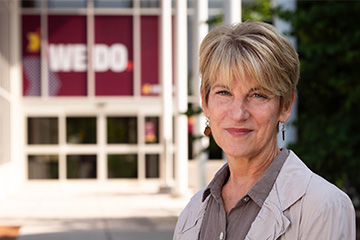Prevention and intervention focus of Fourth Annual Tribal Opioid Summit
Event showcases the community's commitment to healing and hope
As the country faces a devastating opioid epidemic, community leaders in the Great Lakes Bay Region are taking action. Efforts began in 2018 when the Saginaw Chippewa Tribe took it upon themselves to create a platform for change. Together with federal and state partners, and support from Central Michigan University, they organized and hosted the first Tribal Opioid Summit to educate legal, medical and public health providers who battle this crisis on the front lines.
Now a statewide annual event, the Tribal Opioid Summit brings together addiction and recovery specialists, health care professionals, public health officials, victim service providers, law enforcement and court personnel, therapists, educators and students. Previous conferences have focused on education and knowledge-building, action steps for new and innovative methods of community-based treatment, development of new access points, and community participation in native healing therapies.
The 2023 event was hosted by the Saginaw Chippewa Indian Tribe and the Central and Western Area Health Education Center. As part of their commitment to health care education in the community, AHEC joined the opioid summit in 2019. “AHEC is honored to be part of this journey and collaboration with the Saginaw Chippewa Indian Tribe,” Executive Director April Osburn said. “There is no doubt that the opioid epidemic has a devastating impact on the victims and their families. Osburn believes the stigma of addiction causes a compounding ripple effect throughout our communities, affecting quality of life, economic opportunities, and the prosperity of rural areas.
Titled “Healing Our Families and Communities Together,” this year’s conference focused on prevention, intervention and treatment. Participants discussed a variety of issues related to the opioid crisis and took part in workshops focusing on the intersection of drugs and alcohol misuse with human trafficking. Training on the most effective treatments and behavior practices that address the increasing substance use and abuse issues in tribal courts was also presented.
The Tribal Opioid Summit was supported by CMU’s Rural Health Equity Institute and the College of Medicine. Alison Arnold, Ed.D., Executive Director of the RHEI and John Jervinsky, Manager of the Telehealth Programs facilitated a breakout session on Using Telehealth to Bridge the Digital Divide. They presented valuable information on the use of telehealth to address substance-use and opioid-use disorders and discussed the barriers to using telehealth, potential solutions to these barriers, and existing programs in the telehealth field.
The event also featured exhibitors including several tribal departments, Compass Drug Screening, Skywood Recovery and the Northern Michigan Opioid Response Consortium. The summit was supported by the Saginaw Chippewa Indian Tribe, Saginaw Chippewa Tribal Court, Bureau of Indian Affairs (BIA), Central & Western Area Health Education Center Michigan Area Health Education Center (AHEC), Region V Public Health Training Center University of Michigan School of Public Health, Soaring Eagle Casino and Resort, Soaring Eagle Marketing Department, CMU Rural Health Equity Institute and CMU College of Medicine.




